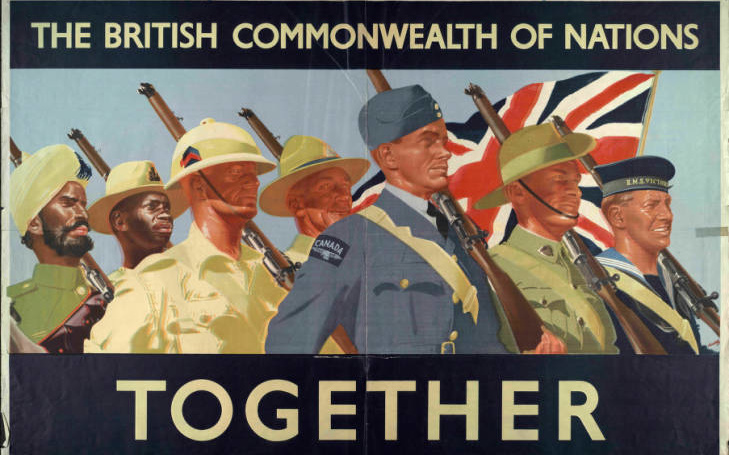Despite the Coronavirus pandemic, people across the UK were encouraged to celebrate the 75th anniversary of V-E Day at the end of May.
Socially-distanced street parties and virtual commemorations remembered Winston Churchill, the bravery of the men from Dunkirk to the return to Normandy four years later, and the final liberation of Europe from Nazism. The British war anthem “We’ll Meet Again” was sung, less than three weeks before Vera Lynn, the woman who made it famous, passed away at the age of 103.
But amid remembrance, another opportunity for the UK to reconnect with its former Empire and its present-day Commonwealth was lost.
A Collective Effort
Almost 3 million UK-born men fought in World War, on land, at sea, and in the air. But they were only part of the effort in an Empire which in 1939 had 25% of the world’s population and controlled 30% of the Earth’s landmass.
More than 12 million men were drawn from that empire to hold back the German, Italian, and Japanese advance. They were part of the fightback from North Africa to Okinawa, one of the bloodiest battles in the Asian theater.
More than 600,000 African troops fought to protect Allied territory in North and sub-Saharan Africa. More than 2,500,000 Indians joined the UK, even as their country sought independence.
V-E Day rightly celebrates the liberation of Europe from Nazi rule, but the UK’s framing of 1945 risks an Anglo- and Euro-centric portrayal that fails to recognize the world beyond the continent.
Britain has become a hypernym subsuming Indians, Kenyans, Jamaicans, and Egyptians, all of whom fought for a future which included but was not centered on the UK. Britain’s history continues to skew with documentaries recycling the pictures from the archives of Normandy, Arnhem, Dieppe, Rome, and Berlin.
A Full and Proper Remembrance
Across India, efforts have been made to highlight the valor of South Asia’s troops in World War II, with organisations such as India Remembers hosting annual events. Descendants of veterans proudly remember the conflict and victory “through old uniforms, battlefield objects, dusty photographs, and conversation”.
In Africa, veteran Sgt. Christopher Kagwa describes the courageous fight of Ugandan, Tanzanian, Kenyan, and Malawian soldiers. He recalls how training made him “confident”, boasting, “We were better than the British, we were beating the Germans like how you beat a goat in your garden”.
The UK’s pride should extend to the Asia theater with the Indian army standing in the way of Japan’s forces. Nagaland and Manipur also belong in the names marking blood, sacrifice, and triumph, with “trenches, bunkers and airfields remaining as they were” from more than 75 years ago.
Britain’s memory should encompass the African soldiers, from those in the Horn of Africa to Kenyans deployed in Burma. It should acknowledge veteran Eusebio Mbiuki, “When I got out, they gave me nothing. They should have known how much we had helped them….We were abandoned just like that.”
VJ Day on August 15 offers a chance for redemption, with the honoring of the veterans of the Commonwealth.
Today’s anti-racism marches and calls for social justice have put a questionable light on the UK’s Empire. It is time to shine that light for recognition of the millions who fought bravely, many of them losing their lives, not just for the UK but for humanity from 1939 to 1945.


Great article, loved reading about the non-European countries and how they should be remembered for their fight towards the cause!
Very interesting article a good read
Elizabeth Paul choudhury